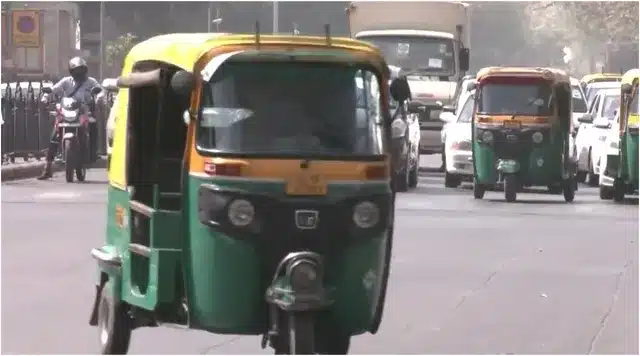Delhi’s CNG Auto Ban Sparks Industry Alarm

The Delhi government’s recent proposal to phase out auto-rickshaws powered by compressed natural gas (CNG) has raised significant concerns within the city gas distribution sector. The draft electric vehicle policy aims to halt the registration of new CNG autos and deny renewal for those over ten years old unless they are retrofitted with battery-electric systems. Industry experts warn that this move could destabilize investments in gas networks across the country, potentially leading to widespread public transport disruptions.
Proposed Changes to Auto-Rickshaw Regulations
The Delhi government’s draft policy, set to take effect on August 15, seeks to ban the registration of new CNG auto-rickshaws and prevent the renewal of licenses for older models unless they meet new electric standards. This decision has alarmed stakeholders in the gas distribution industry, as it could affect approximately 60,000 of the 90,000 autos currently operating in the city. Many of these vehicles are nearing the ten-year mark, making them subject to the new regulations.
Industry representatives have expressed concerns about the feasibility of transitioning to electric vehicles. The high cost of purchasing new electric autos, coupled with the lack of established retrofitting standards and adequate charging infrastructure, poses significant challenges. An executive from a major operator highlighted these issues, stating that the transition must be gradual and supported by government incentives to avoid chaos in public transport.
Impact on City Gas Distribution Investments
CNG retail is a crucial segment of the city gas business, accounting for a significant portion of sales. The proposed ban on CNG autos threatens the viability of ongoing and future investments in city gas networks. An executive from another gas operator noted that the success of previous licensing rounds was largely due to the government’s recognition of natural gas as a transitional fuel. The policy aimed to increase the share of gas in the country’s energy mix from 7% to 15% by 2030.
The proposed changes could also have a domino effect on the development of 195 compressed natural bio gas plants, which are being constructed by public sector companies under the government’s SATAT policy. These projects represent an estimated investment of ₹2.5 lakh crore. The government had previously encouraged oil companies to invest in this sector, as private firms hesitated due to economic uncertainties.
Call for a Balanced Transition to Electric Vehicles
Industry leaders are advocating for a more balanced approach to the transition from CNG to electric vehicles. They argue that natural gas should be treated as a distinct category from liquid hydrocarbons, emphasizing the need for a gradual shift. Currently, around 70% of electricity used for charging electric vehicles is generated from coal, raising concerns about the environmental impact of an abrupt transition.
Experts suggest that the government can facilitate a smoother transition by implementing incentives for both consumers and operators. This would help address the challenges of retrofitting existing vehicles and expanding the necessary charging infrastructure. As the debate continues, the future of Delhi’s auto-rickshaw fleet and the broader city gas distribution industry hangs in the balance.
Observer Voice is the one stop site for National, International news, Sports, Editor’s Choice, Art/culture contents, Quotes and much more. We also cover historical contents. Historical contents includes World History, Indian History, and what happened today. The website also covers Entertainment across the India and World.

